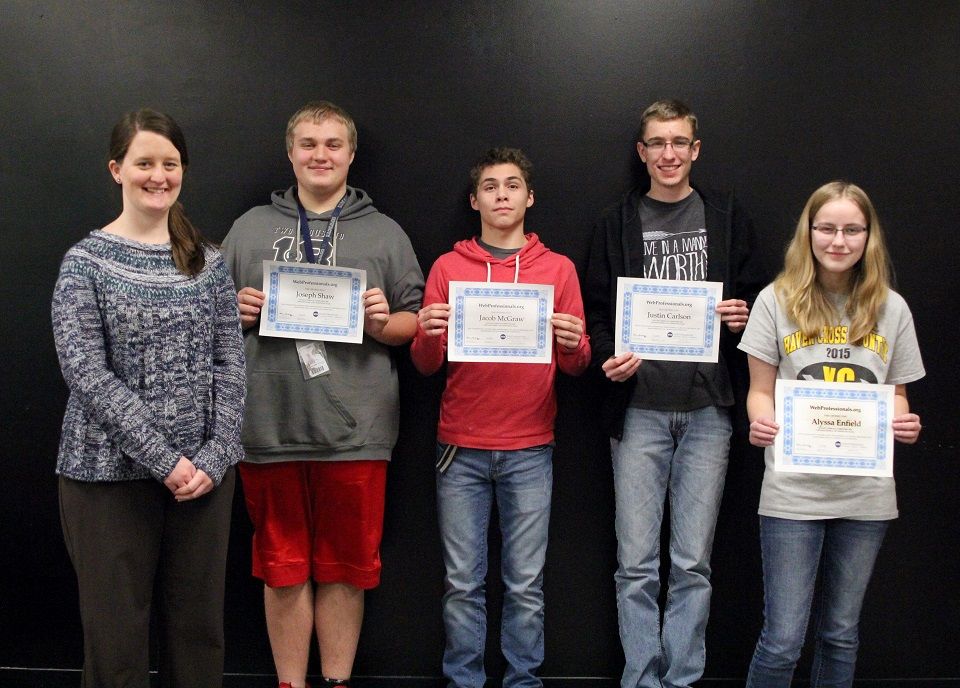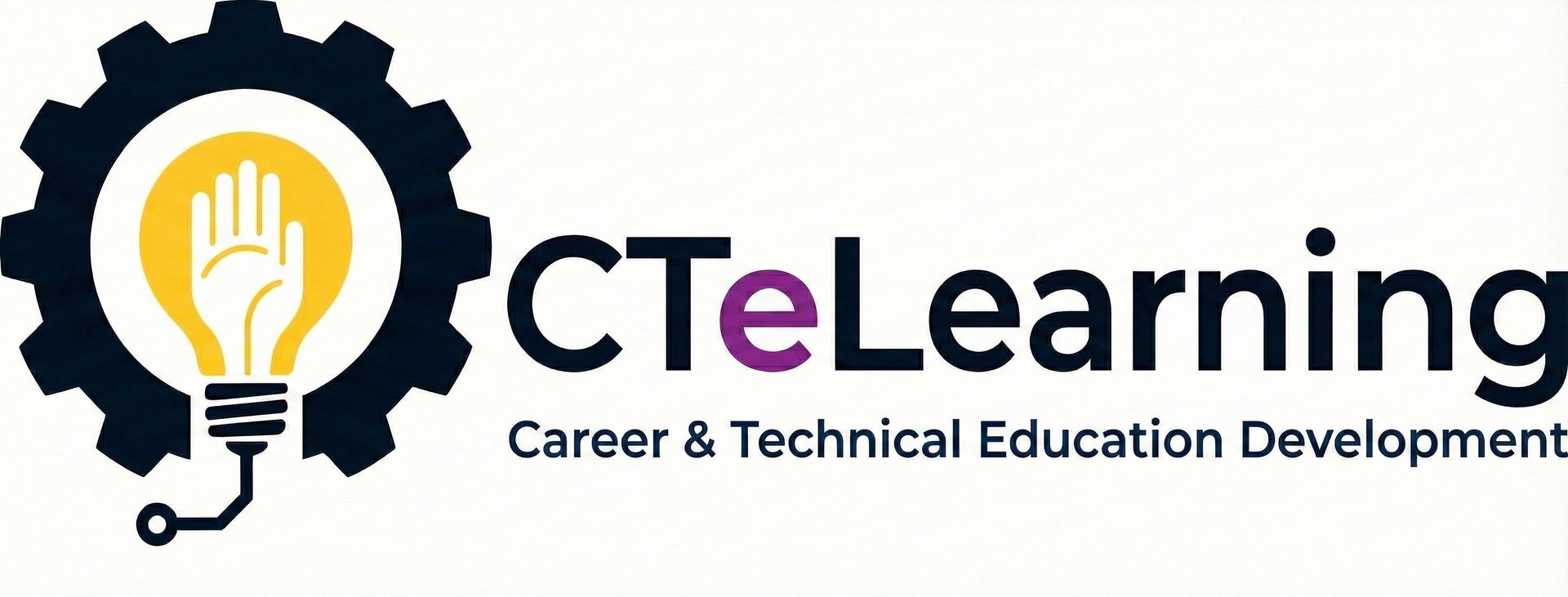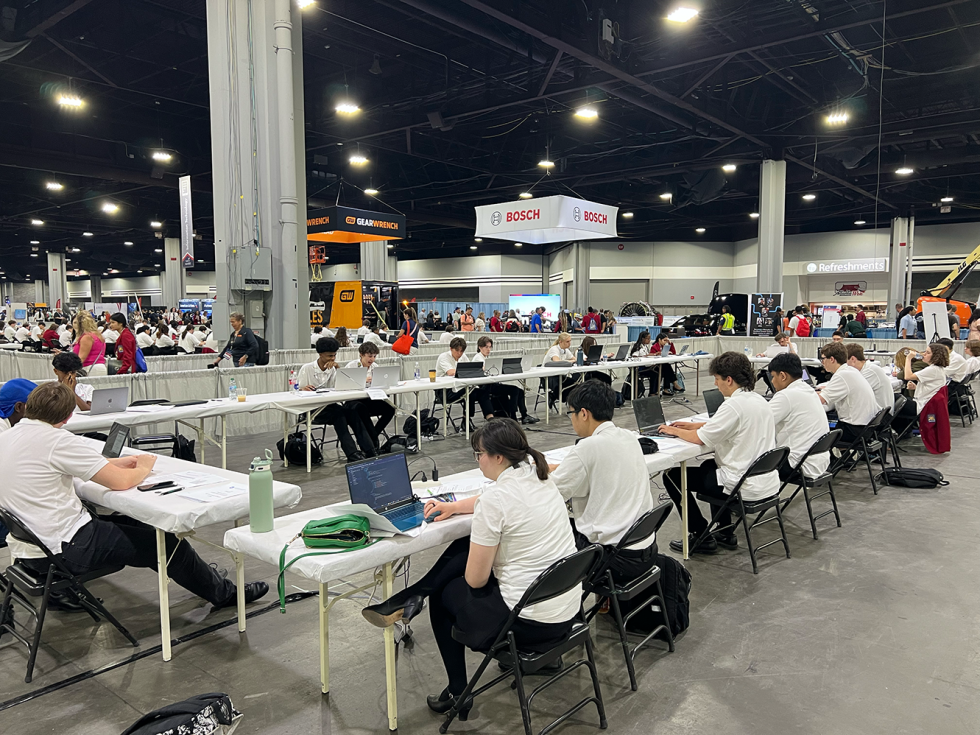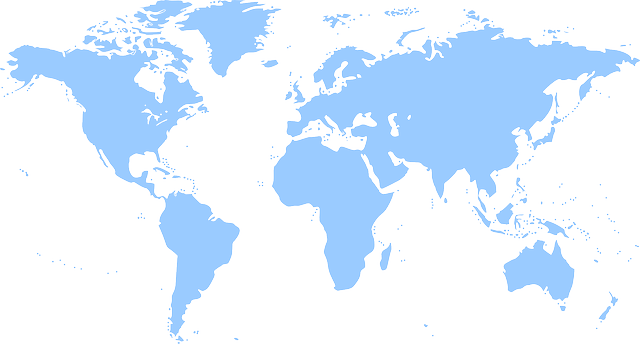Blog
How Can AI Help People in the Trades?
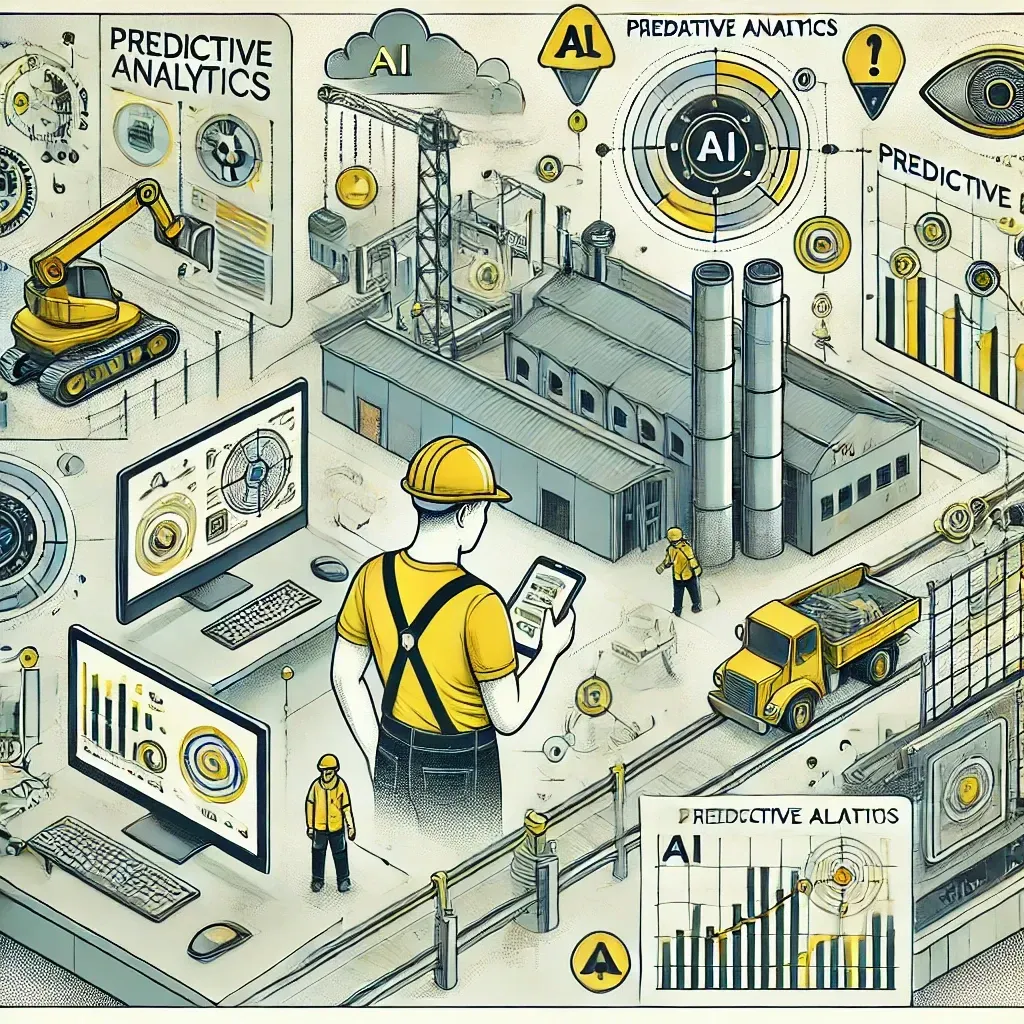
Artificial Intelligence (AI) is revolutionizing industries worldwide, and the trades are no exception. Rather than replacing skilled tradespeople, AI is emerging as a powerful tool to enhance their work. From streamlining complex tasks to offering innovative solutions, AI enables tradespeople to work smarter, faster, and more efficiently—saving time and money while improving safety and quality.
So often, people think of AI as a tool only for the tech world, but it has applications far beyond coding and software development. Whether you are in a trade, a small business owner, or a tech professional, AI has something to offer everyone—if you know how to use it. By learning how to integrate AI into daily workflows, individuals across all industries can unlock new efficiencies and possibilities.
We could apply this approach to every trade career, but we already do this comprehensively with our PromptScout app in our brand-new AI for the Workplace course. In this article we will highlight several career pathways including welding, construction, electrical work, plumbing, dental hygiene, and cosmetology to demonstrate how trade professionals are finding practical ways to incorporate AI tools like ChatGPT, Claude, Perplexity, CoPilot, etc. into their daily routines.
AI in Welding
Applications and Benefits
AI in welding is primarily used for quality assurance, process optimization, and safety monitoring. Welding involves precision, and even minor errors can lead to structural weaknesses. AI can analyze welding patterns, detect inconsistencies, and provide real-time feedback to improve quality. For example, AI-powered welding robots equipped with sensors can monitor heat levels, adjust welding speed, and ensure consistent weld seams. These robots don’t replace welders but assist them in achieving precise results, reducing the need for rework and material waste.
Example: Using ChatGPT in Welding
A welder could use ChatGPT to quickly look up troubleshooting steps for common welding defects like porosity or cracking. For instance, a welder encountering uneven weld beads might ask, “What are some reasons my weld beads are uneven, and how can I fix them?” ChatGPT could provide detailed guidance, helping the welder resolve the issue on the spot.
AI in Construction
Applications and Benefits
Construction projects are complex, requiring meticulous planning and coordination. AI excels in managing logistics, analyzing structural designs, and predicting potential issues before they arise. AI-powered software can create detailed project schedules, optimize material usage, and forecast potential delays due to weather or supply chain disruptions. Drones equipped with AI can survey construction sites, providing accurate measurements and identifying safety hazards.
Example: Using ChatGPT in Construction
A construction manager might use ChatGPT to draft safety guidelines for a specific task or generate a materials list based on project specifications. For example, “What are the safety precautions for operating a crane near power lines?” ChatGPT can offer a concise checklist, ensuring compliance and worker safety.
AI in Electrical Work
Applications and Benefits
Electricians benefit from AI tools that diagnose electrical issues, design circuits, and predict system failures. Smart home systems integrated with AI allow electricians to set up automated energy-saving configurations for clients, enhancing functionality and efficiency. AI-powered diagnostic tools can analyze electrical panels and pinpoint issues such as overloaded circuits or faulty wiring. These tools save time by eliminating guesswork, allowing electricians to focus on repairs.
Example: Using ChatGPT in Electrical Work
An electrician could use ChatGPT to find wiring diagrams or confirm code compliance for a specific installation. For instance, they might ask, “Help me diagnose a large voltage drop on an outside circuit.” ChatGPT’s response can serve as a quick reference, ensuring the job is done correctly. Additionally, an electrician could use AI tools to create a brochure or blog post to promote their qualifications, highlighting certifications, services offered, and customer testimonials to attract more clients.
AI in Plumbing
Applications and Benefits
AI in plumbing aids in detecting leaks, mapping pipe systems, and preventing water waste. Smart sensors combined with AI can monitor water flow and alert plumbers to potential issues before they escalate. AI-enabled cameras can inspect pipes for blockages or corrosion, providing plumbers with real-time visuals and analytics. These tools improve accuracy and reduce the time needed to diagnose problems.
Example: Using ChatGPT in Plumbing
A plumber might use ChatGPT to draft an estimate or explain a repair process to a customer. For example, “How should I explain the steps for replacing a water heater to a homeowner?” ChatGPT can generate a clear explanation, helping the plumber communicate effectively and build trust with the client. Additionally, a plumber could use AI tools to create a spreadsheet showing the return on investment (ROI) for installing low-flow toilets and shower heads, illustrating potential water savings and long-term cost benefits for clients.
AI in Dental Hygiene
Applications and Benefits
Dental hygienists can leverage AI for patient diagnostics, treatment planning, and education. AI-powered imaging tools analyze X-rays and dental scans to detect cavities, gum disease, or other oral health issues more accurately and quickly than traditional methods. AI can also streamline administrative tasks like appointment scheduling, allowing dental hygienists to focus more on patient care.
Example: Using ChatGPT in Dental Hygiene
A dental hygienist might use ChatGPT to draft a patient-friendly explanation of a complex treatment plan. For instance, they could ask, “How can I explain the process of scaling and root planing to a nervous patient?” ChatGPT could generate a calming and clear explanation, making patients feel more at ease.
AI in Cosmetology
Applications and Benefits
Cosmetologists can use AI to enhance customer consultations, create personalized beauty regimens, and manage salon operations. AI-driven apps analyze skin and hair conditions, recommending tailored treatments or products for clients.
Additionally, AI can assist in designing hairstyles or makeup looks, using virtual try-on technology to help clients visualize results before committing to a service.
Example: Using ChatGPT in Cosmetology
A cosmetologist might use ChatGPT to write a social media post promoting a new service or product. For example, “Can you help me create a post about the benefits of keratin treatments?” ChatGPT could draft an engaging post, helping attract new clients and build their business. Additionally, a cosmetologist could use ChatGPT to create an outline and script for giving a workshop for seniors on best practices to maintain healthy hair. For instance, they might ask, “Help me draft a detailed outline and talking points for a workshop on senior hair care best practices.” ChatGPT can generate a professional and engaging plan to ensure the workshop is both informative and enjoyable.
Additional Benefits of AI for Tradespeople
- Time-Saving: AI automates repetitive tasks like documentation, inventory management, and scheduling, allowing tradespeople to focus on hands-on work.
- Cost Efficiency: AI reduces waste and optimizes resource use, saving money on materials and energy.
- Safety: AI-powered sensors and monitoring tools enhance workplace safety by identifying hazards and ensuring compliance with regulations.
- Skill Enhancement: By providing instant access to information and best practices, AI empowers tradespeople to continuously improve their skills.
Conclusion
AI is a game-changer for the trades, offering tools and insights that help professionals work more efficiently, reduce costs, and improve outcomes. Whether it’s ensuring the precision of a weld, optimizing a construction schedule, diagnosing electrical issues, detecting plumbing leaks, enhancing dental hygiene, or improving cosmetology services, AI enhances the capabilities of skilled tradespeople without replacing their expertise.
By integrating AI tools like ChatGPT into their daily workflows, tradespeople can solve problems faster, communicate more effectively, and deliver higher-quality results. As AI continues to evolve, its potential to support and empower the trades will only grow, making it an indispensable partner for professionals in the field.
CTeLearning's AI for the Workplace curriculum with an industry-based microcredential enables CTE teachers to give their students a career-boosting industry credential in just five hours of class time. This curriculum empowers learners with skills to use AI as a tool, positioning them as the most hireable employees in their fields.
Interested in learning more? Click here or call us at 913-764-4272 to schedule a free 20-minute demo of any of our courses and certifications.
Citations
- American Welding Society. (2023). “AI in Welding: Enhancing Precision and Quality.” Retrieved fromhttps://www.aws.org
- National Association of Home Builders. (2023). “AI Tools in Construction Management.” Retrieved fromhttps://www.nahb.org
- International Brotherhood of Electrical Workers. (2023). “How AI is Supporting Electricians.” Retrieved fromhttps://www.ibew.org
- Plumbing Manufacturers International. (2023). “AI Applications in Modern Plumbing.” Retrieved fromhttps://www.safeplumbing.org
- WebProfessionalsGlobal.org “Congratulating the First Students to Earn the New Certified AI for the Workplace Credential” Retrieved from https://webprofessionalsglobal.org/congratulating-the-first-students-to-earn-the-new-certified-ai-for-the-workplace-credential/
- WebProfessionalsGlobal.org “Introducing the AI for the Workplace Certificate “ https://webprofessionalsglobal.org/introducing-the-ai-for-the-workplace-certificate/
Share To
Get in touch with us today!
You can book a demo directly using Calendly, call us directly at 913-764-4272 or 877-828-1216, or submit the form and we will reach out to you.
We look forward to helping you and your students.
